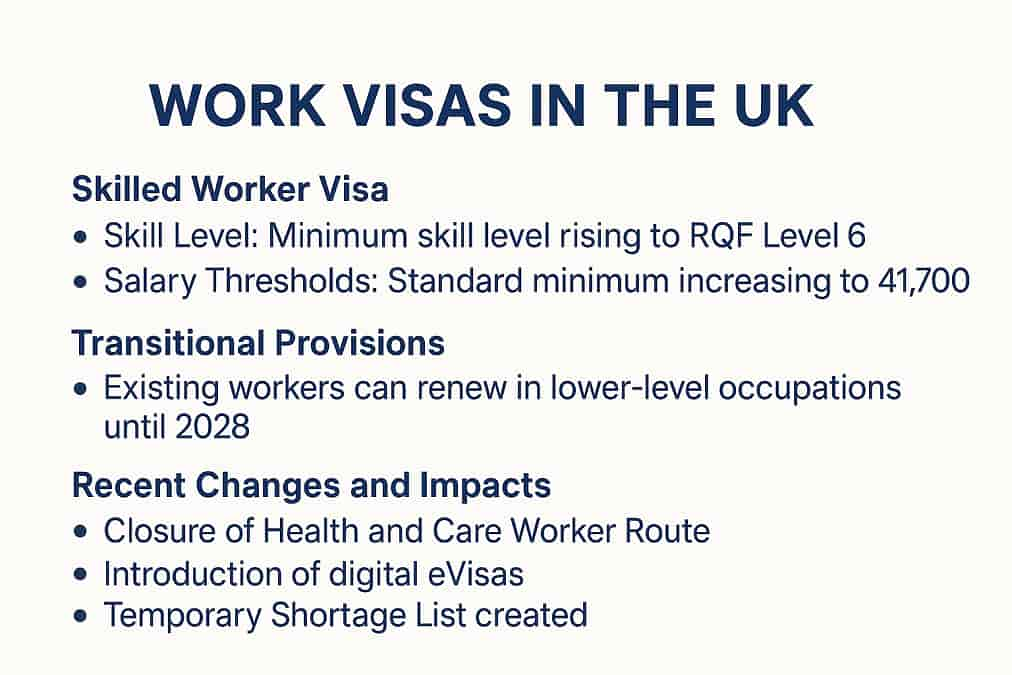The UK’s immigration and employment landscape is undergoing significant reform, with new visa requirements poised to reshape opportunities for overseas workers and the employers who recruit them. These measures directly affect the Skilled Worker visa route, one of the most widely used channels for bringing international talent into the country.
Skilled Worker visa: What’s changing
The minimum skill level for eligibility has risen from RQF Level 3 to RQF Level 6, placing it on par with a UK bachelor’s degree. This shift is designed to align visa sponsorship with higher educational and professional standards, meaning many roles that previously qualified will no longer meet the criteria.
Alongside the skills uplift, the minimum salary threshold for Skilled Worker visas has increased to £41,700 per year. Different salary bands still apply to certain groups, such as new entrants to the labour market and those working in shortage occupations. However, the higher baseline will reduce the pool of eligible lower-paid roles.
For those already in the UK under the Skilled Worker route before these changes took effect, transitional provisions allow continued employment in lower-level occupations until 2028, subject to meeting specific renewal conditions.
Wider immigration reforms
These amendments form part of a broader strategy aimed at focusing the UK’s workforce on high-skill, high-value roles, while reducing reliance on lower-skilled migration pathways. Notable updates include:
- Closure of the Health and Care Worker route: New applications are no longer being accepted, impacting many overseas healthcare professionals.
- Digital eVisas: The government is moving towards an entirely digital visa system, designed to streamline processing and improve accessibility.
- Temporary Shortage List: A newly introduced list identifies critical-need roles, allowing limited flexibility for certain lower-skilled positions to be sponsored when shortages are acute.
Impact on workers and employers
The reforms require employers to review their recruitment strategies and ensure that sponsored roles meet the revised thresholds. For workers, the changes underscore the importance of aligning qualifications, skills, and salary expectations with the new legal framework.
The move to RQF Level 6 and a higher salary threshold is likely to increase competition for eligible roles, making compliance and preparation essential for anyone considering applying under the Skilled Worker route.
Key takeaway
With substantial policy shifts now in place, understanding the evolving rules is vital for anyone seeking work in the UK or hiring internationally. Employers and workers should take proactive steps to ensure compliance with the revised skill and salary requirements.
For further detailed guidance, refer to www.gov.uk.




